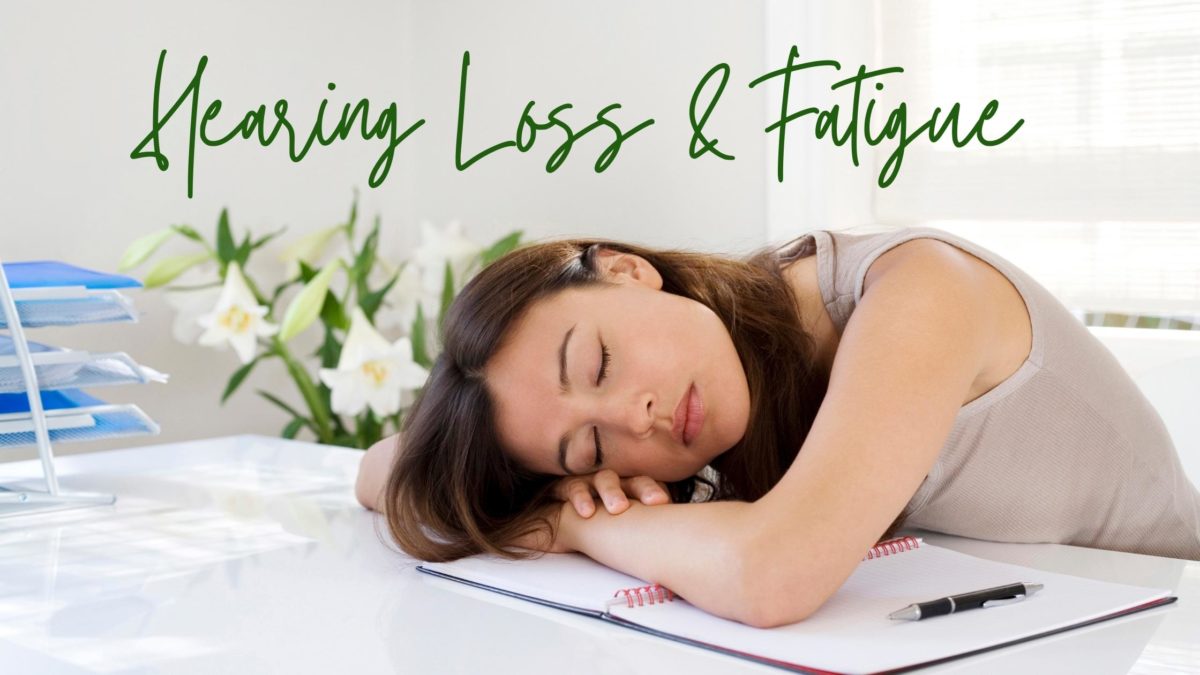- Summer Sports and Their Impact on Hearing Health - July 15, 2024
- Should You Disclose Your Hearing Loss? - July 3, 2024
- What Is the Impact of Smoking and Alcohol on Hearing? - June 25, 2024
It is common to experience listening fatigue after listening to speech (or sound) for long periods. You have likely experienced this after long meetings, concerts, or conversations that require exerting substantial energy for an extended period to process what you are hearing. Listening fatigue can be particularly challenging for people with hearing loss who already experience difficulty with hearing and processing sound. Understanding this fatigue, treating hearing loss, and practicing ways to protect your hearing health can significantly alleviate fatigue as well as transform health.
Understanding How We Hear
To understand how hearing loss can produce fatigue, it is important to know how hearing works. The auditory system is the sensory system that includes the ears and brain which work together to process and understand sound:
- Outer ear: the most visible part of the ear (outer cartilage) absorbs sound waves from the environment. These soundwaves travel through the ear canal and land on the eardrum.
- Middle ear: movement of the eardrum activates the ossicles – three connected bones – which help push the soundwaves further into the inner ear.
- Inner ear: thousands of hair cells help convert soundwaves into electrical signals. These signals are then carried to the brain via the auditory nerve.
Once these electrical signals reach the brain, they are further processed and assigned meaning to which is what enables us to understand the speech and sound we hear.
How Hearing Loss Produces Fatigue
Hearing loss requires the brain to exert more energy to process the information it receives from the inner ear. This includes:
- Temporal lobe: located behind the ears, the temporal lobe houses the auditory cortex which receives sound information from the inner ear.
- Wernicke’s area: this part of the brain is also located in the temporal lobe and helps with speech comprehension.
- Broca’s area: located in the frontal lobe, broca’s area is responsible for speech production and language comprehension.
When hearing loss is present, these areas of the brain are required to work harder to perform their essential functions. Hearing loss most often occurs as a result of the hair cells in the inner ear dying or being damaged which reduces their capacity to translate incoming sound waves into electrical signals. This is critical and required for the brain to process that information so when hair cells are damaged, the brain is forced to overwork the areas that are part of the auditory system. This additional energy results in fatigue and feeling exhausted during and after conversations.
Benefits of Hearing Aids
Fortunately, there are useful ways that hearing loss is treated that alleviate listening fatigue. The most common treatment is hearing aids – medical devices that are designed to absorb, amplify, and process sound. This provides the auditory system with significant support, allowing people to hear and process sound much more easily and clearly. Hearing aids offer numerous life-changing benefits including:
- Strengthening communication: in helping with processing sound, hearing aids alleviate symptoms of hearing loss including listening fatigue. This allows people to fully participate in conversations and engage without the stress of unpleasant symptoms.
- Improves brain health: hearing aids also improve brain health by providing critical support that strengthens cognitive functions. This reduces the risk of experiencing cognitive decline which is correlated with untreated hearing loss.
- Enhances relationships: effective communication and improved overall health also strengthen relationships. People are better able to spend quality time with loved ones, share in on the intimacy of conversations, and actively listen. This nurtures closeness and alleviates the stress that untreated hearing loss often is a source of in relationships.
Hearing aids maximize hearing capacity, easing symptoms including listening fatigue. Treating hearing loss also offers major benefits that can profoundly improve daily life and wellness.
Treat Your Hearing Loss Today
Listening fatigue is a common symptom of untreated hearing loss. This fatigue can lead to social withdrawal, impact relationships, affect mental health, and daily well-being. Addressing hearing loss as soon as possible can alleviate fatigue as well as transform hearing health. You can prioritize your hearing health today by committing to the simple first step: scheduling an appointment with a hearing healthcare provider for a hearing test. Call us today to get started!

